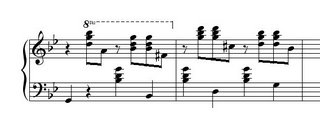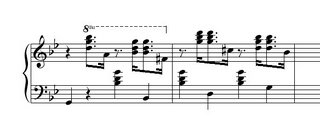There are some cultural events so momentous, dear readers, that I must suspend the daily rotor of events, must pause even mid-Venti, unfolding and plugging in the aluminum square which skeptical future generations, uncomprehending, will have to speculate was some sort of universal God or Icon, and lay fingers velvety over the clicking surfaces, and scrounge around in the inaccessible, ever-disappearing-behind-a-curtain gray matter for some appropriate thunderbolt of expression, some wordnugget to convey their magnitude to you (“Hypocrite lecteur,” cf. Baudelaire, Fleurs du Mal). Such is today’s WB Farewell (link here).
My friend A was first shocked by this news, as she knew what a blow it would be to me. Before she could shield, deflect, and conceal the rush of empathetic emotion, her naked sense of my vulnerability leaked through: “But your fantasy world… will shrink … and dry up … like a raisin …” (I’m paraphrasing a bit here, she was more eloquent and her simile was less nutritious.) It is not every morning that you contemplate pre-coffee the destruction of your extended adolescence. It is true:
–I have spent lamentable hours banging head against wall wondering whether Ben or Noel would be the preferable mate for Felicity;
— I have imbibed numerous margaritas on my nearly astroturf carpet and swallowed back horrendous oily torrents of Chinese food watching unlikely boyfriends get run over by buses and submit to all sorts of preposterous plot twists;
— I have wept in Middlebury on a cloudy cold afternoon (when I should have been practicing) while watching wobbly VHSes of season 5 of Buffy (yes the one where she dies, twice), and have seriously compared the cold onset of early winter, and the running of half-icy streams, to Buffy’s Dostoevskian trials, her angry submission to fate, the teenaged opposite of late Beethovenian peaceful resignation, but with the same result;
— I have laughed at Angel’s supernatural irony, at the postmodern pancake of vampire and teen cliche, and have allowed it to permeate my pores, contaminating my aesthetic judgment permanently;
— I have winced and groaned under the sheer obvious manufactured pathos and lesson-learning of Dawson’s Creek, and I fought the pain of perpetual insults to my intelligence, and still found time to get teary-eyed whenever Joey gets conflicted (often), or when Dawson and Pacey throw their man-child tantrums with elicited unconviction, or when slimy nostalgia vomits all over the script and no one bothers to clean it up, including me;
This and so much more, I have done. I cannot confess it all; the sins I have committed with the WB are beyond number, like strollers in my 93rd Street Starbucks. And now, having defiled me, having taken the virginity of my image-repertoire, the WB plans to just up and leave, to dissolve into some other corporation and leave me adrift, high and dry, in my 30s, with a heap of desiccated psychobabble at my feet in the sands of unplotted time. As A wryly observed, “you might see this as an opportunity,” a time to quote-un-quote, “throw away the short pants.” I pretend to have no idea what this expression means. And yes I deliberately put quotations redundantly around the quote-un-quote, do you have a problem with that?
I’m not sure if this is true, but that of course will not stop me from saying it, in a really exaggerated, declarative manner: I believe the WB represents a climactic, pivotal event in the transformation of the American Pop Culture Narrative, in which all stories, no matter how great or small or implausible or profound, can (nay, must!) be transferred into the theatre of the American campus/schoolyard. In fact, I think there can be only two choices for the writer of a modern script (as Barthes points out, “there is only what I can choose to write, to put forth in this world of mine, and what I choose not to”): high school, or college. Once you have chosen, your casting is pretty much done, then pop whatever timeless narrative you wish into it, superimpose the element of Wanting to Be Popular if necessary, contrive a scene with a swimming pool (to get your money’s worth out of the Young Bodies you have employed), save it to disk, and await royalties. Soon, I am sure, there will be a King Lear set in high school, and the doddering protagonist will be played by an over-the-hill senior, who has been driven senile by too many late nights at the drive-thru, or by some chemicals they put in the tater tots (King Lear meets Erin Brockovich?). He (or she) will pass power down to some nascent popular boys or girls and I think the rest writes itself. I will call it King Larson. Larson/Lear will be played by Chad Michael Murray.

His eyes will not be gouged, but his sunglasses will be seriously damaged. Thank you, thank you, send bids for the script to my friend A … as revenge for her too-penetrating analysis of my emotional situation. Anyway, back to my serious point, which is that, in the world of American Narrative, (ridiculous generalization follows of course, but that is only my revenge on the generalizing nature of Narrative, generally), beyond the college years yawns an endless abyss where only pockmarked policemen and disillusioned spouses dwell in a purgatory of nondefinitive endings. Jack McCoy lurks as aging icon of sexless justice (world of the mind!). Need I mention NYPD Blue? There is no easy “venue” for these “late-life” dramas; they are always gritty, or tormented. I eagerly await a prime-time drama about graduate students doing their dissertations (let’s call it “ABD”, and of course it would have to be on ABC). If you want to explore this existence beyond the 21 mark, you must then do a story about elusive disintegrations, loss, memory, or put in a compensatory amount of violence; something must either trivialize or literarize the story. I loved You Can Count on Me, but case in point: it is tinged with sadness, regret, loss, and it is no longer really a STORY. It is just kind of a moment between further disintegrations. The Narrative, these days, is so dependent upon the geographical limitations of the campus; like a nervous child dropped at school, it gets frightened when it has to wander off; writers behave as if the geographical boundary also creates and implies some welcome emotional limitations: as long as they stay on campus they are safe and a story can be told.
The WB, by planting not just naive, sexually precocious youngsters (paradox?), but also vampires and demons, on campus, and by framing their shows, despite all contradicting transcendencies of time and space, to begin and end with matriculations and graduations (“behold this is the world”), created and glorified this campuscosmos and invited us to live in it, if only in the mind. And I today, between 5 and 10 Eastern time (4/9 Central) must bid farewell to the landscaped, hour-parcelled world they seduced me into; I must lose, finally, even the benefits of my Faustian bargain. If I arrange to videotape today’s episodes, and watch them again and again, will that still constitute some sort of mature moving on, or must I just let it go, watch and weep and let them vanish into ether and memory? What would Buffy tell me to do, I wonder …





